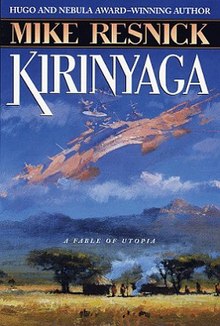
Brian Wilson Aldiss was an English writer, artist and anthology editor, best known for science fiction novels and short stories. His byline reads either Brian W. Aldiss or simply Brian Aldiss, except for occasional pseudonyms during the mid-1960s.
Feminist science fiction is a subgenre of science fiction focused on such feminist themes as: gender inequality, sexuality, race, economics, reproduction, and environment. Feminist SF is political because of its tendency to critique the dominant culture. Some of the most notable feminist science fiction works have illustrated these themes using utopias to explore a society in which gender differences or gender power imbalances do not exist, or dystopias to explore worlds in which gender inequalities are intensified, thus asserting a need for feminist work to continue.
Science fiction and fantasy serve as important vehicles for feminist thought, particularly as bridges between theory and practice. No other genres so actively invite representations of the ultimate goals of feminism: worlds free of sexism, worlds in which women's contributions are recognized and valued, worlds that explore the diversity of women's desire and sexuality, and worlds that move beyond gender.

Octavia Estelle Butler was an American science fiction writer who won several awards for her works, including Hugo, Locus, and Nebula awards. In 1995, Butler became the first science-fiction writer to receive a MacArthur Fellowship.

The Kikuyu are a Bantu ethnic group native to East Africa Central Kenya. At a population of 8,148,668 as of 2019, they account for 17.13% of the total population of Kenya, making them Kenya's largest ethnic group.
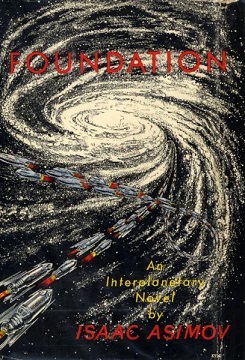
Foundation is a science fiction novel by American writer Isaac Asimov. It is the first book in the Foundation Trilogy. Foundation is a cycle of five interrelated short stories, first published as a single book by Gnome Press in 1951. Collectively they tell the early story of the Foundation, an institute founded by psychohistorian Hari Seldon to preserve the best of galactic civilization after the collapse of the Galactic Empire.
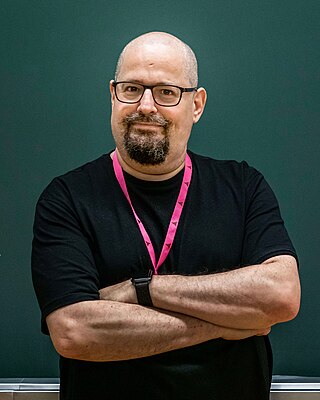
Charles David George "Charlie" Stross is a British writer of science fiction and fantasy. Stross specialises in hard science fiction and space opera. Between 1994 and 2004, he was also an active writer for the magazine Computer Shopper and was responsible for its monthly Linux column. He stopped writing for the magazine to devote more time to novels. However, he continues to publish freelance articles on the Internet.
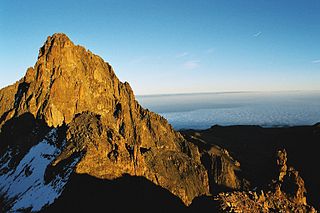
Mount Kenya is an extinct volcano in Kenya and the second-highest peak in Africa, after Kilimanjaro. The highest peaks of the mountain are Batian, Nelion and Point Lenana. Mount Kenya is located in the former Eastern and Central provinces of Kenya; its peak is now the intersection of Meru, Embu, Kirinyaga, Nyeri and Tharaka Nithi counties, about 16.5 kilometres south of the equator, around 150 km (90 mi) north-northeast of the capital Nairobi. Mount Kenya is the source of the name of the Republic of Kenya.

Michael Diamond Resnick was an American science fiction writer and editor. He won five Hugo awards and a Nebula award, and was the guest of honor at Chicon 7. He was the executive editor of the defunct magazine Jim Baen's Universe, and the creator and editor of Galaxy's Edge magazine.

Ian McDonald is a British science fiction novelist, living in Belfast. His themes include nanotechnology, postcyberpunk settings, and the impact of rapid social and technological change on non-Western societies.
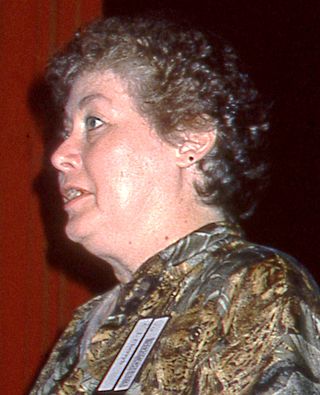
American writer C. J. Cherryh's career began with publication of her first books in 1976, Gate of Ivrel and Brothers of Earth. She has been a prolific science fiction and fantasy author since then, publishing over 80 novels, short-story compilations, with continuing production as her blog attests. Cherryh has received the Hugo and Locus Awards for some of her novels.
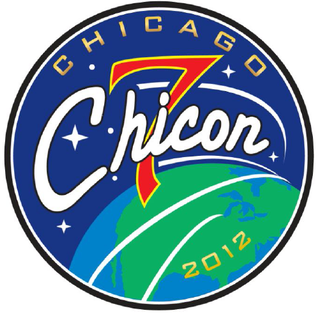
The 70th World Science Fiction Convention (Worldcon), also known as Chicon 7, was held on 30 August–3 September 2012 at the Hyatt Regency Chicago in Chicago, Illinois, United States.
The 47th World Science Fiction Convention (Worldcon), also known as Noreascon 3, was held on 31 August–4 September 1989 at the Sheraton-Boston Hotel, Hilton Hotel, Boston Park Plaza, and the Hynes Convention Center in Boston, Massachusetts, United States.
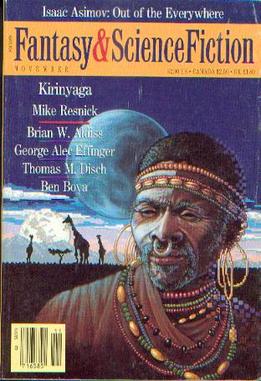
"Kirinyaga" is a science fiction short story by American writer Mike Resnick, published in 1988; it is the first chapter in the book by the same name. The story was the winner of the 1989 Hugo Award for Best Short Story and the 1989 SF Chronicle Award. It was also nominated for the 1989 Nebula Award for Best Novelette as well as the 1989 Locus award.

Nora Keita Jemisin is an American science fiction and fantasy writer. Her fiction includes a wide range of themes, notably cultural conflict and oppression. Her debut novel, The Hundred Thousand Kingdoms, and the subsequent books in her Inheritance Trilogy received critical acclaim. She has won several awards for her work, including the Locus Award. The three books of her Broken Earth series made her the first author to win the Hugo Award for Best Novel in three consecutive years, as well as the first to win for all three novels in a trilogy. She won a fourth Hugo Award, for Best Novelette, in 2020 for Emergency Skin, and a fifth Hugo Award, for Best Graphic Story, in 2022 for Far Sector. Jemisin was a recipient of the MacArthur Fellows Program Genius Grant in 2020.
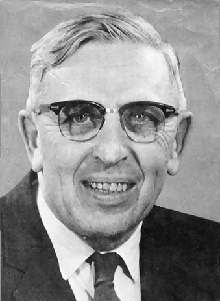
Clifford Donald Simak was an American science fiction writer. He won three Hugo Awards and one Nebula Award. The Science Fiction Writers of America made him its third SFWA Grand Master, and the Horror Writers Association made him one of three inaugural winners of the Bram Stoker Award for Lifetime Achievement. He is associated with the pastoral science fiction subgenre.
Many cultures around the world have stories about groups of nine women. In Great Britain they occur in a variety of situations. In Scotland there are references to Nine Maidens, purportedly a group of, and there were a number of wells dedicated to them, but like all similar groupings would appear to have had their origin in pre-Christian times. In Arthurian material, the best known of these groups are the Nine sorceresses, Morgan and her sisters who live on the Isle of Avalon and are both seeresses and healers. Another group occur in the Welsh tale of Peredur son of Efrawg, and these are the armed witches of Caer Loyw. Also in Welsh mythology, we have nine maidens who tend the fire below the Cauldron of the "Chief of Annwn"; this cauldron is the target of Arthur’s raid on the Underworld in Taliesin’s famous poem Preiddeu Annwfn.
Science Fiction Chronicle was an American science fiction magazine published from 1979 to 2006. It was named Science Fiction Chronicle until 2002 and from then until 2006, just Chronicle.

The Dark Between the Stars is a 1981 collection of previously-published science fiction short stories by American writer Poul Anderson.
List of works by American science fiction author Mike Resnick.

Nebula Awards Showcase 54 is an anthology of science fiction and fantasy short works edited by Bengali writer Nibedita Sen. It was first published in trade paperback by SFWA, Inc. in November 2020, followed by an ebook edition from the same publisher in December of the same year.
